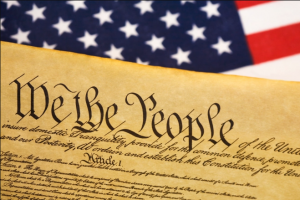The 10th Amendment to the United States Constitution is a part of the Bill of Rights, and it states that any powers not delegated to the federal government by the Constitution, nor prohibited to the states, are reserved to the states or to the people.
This amendment was added to the Constitution in order to further define the relationship between the federal government and the states, and to ensure that the states retained a significant level of autonomy.
One of the most important implications of the 10th Amendment is that it limits the power of the federal government by specifying that it can only exercise those powers that have been specifically delegated to it by the Constitution. This means that the federal government cannot simply assert authority over any issue it sees fit, but must instead rely on the powers given to it by the Constitution.
The 10th Amendment is often invoked in legal disputes over the balance of power between the federal government and the states. For example, it has been used to challenge federal laws that are seen as overreaching or infringing on the rights of the states. The U.S Supreme court often relies on the 10th amendment to uphold state sovereignty and limit federal government’s power.
In everyday life, the 10th Amendment plays a role in many areas, including education, healthcare, and criminal justice. For example, the 10th Amendment is often cited in debates over the role of the federal government in education policy, with some arguing that education is primarily a state and local responsibility. Similarly, the 10th Amendment is often invoked in discussions about healthcare reform, with some arguing that the federal government should not be heavily involved in healthcare and that decisions about healthcare should be left to the states.
Additionally, the 10th Amendment also plays an important role in criminal justice, as it allows states to have their own criminal laws and procedures, as long as they do not conflict with the Constitution and federal laws.
In conclusion, the 10th Amendment is an important part of the United States Constitution, as it helps to define the relationship between the federal government and the states, and ensures that the states retain a significant level of autonomy. It is often invoked in legal disputes, and plays a role in many areas of everyday life, including education, healthcare, and criminal justice.

